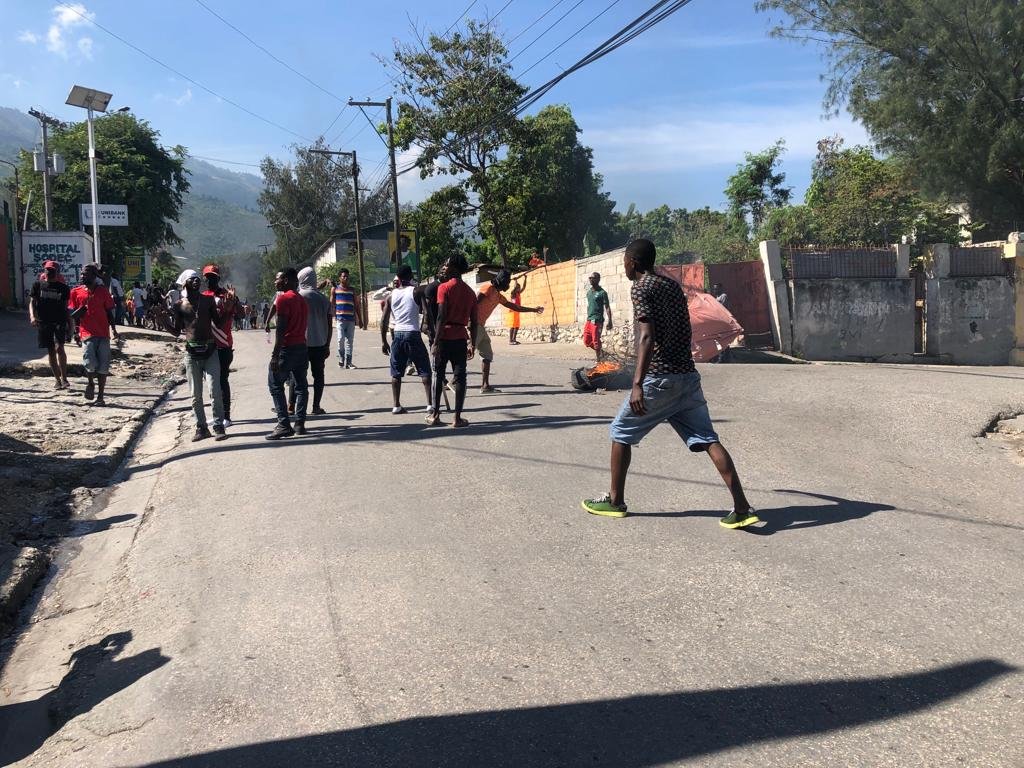Is the Dominican Republic Fueling Insecurity in Haiti?
According to Gardy Maisonneuve, the D.R. is the principal benefactor of Haiti's insecurity. He maintains the Dominican government encourages chronic instability in Haiti by funding religious leaders and politicians who weaken the country.
Gardy Maisonneuve is a human rights activist in Haiti who co-hosts the program on Radio Timoun, Droit et Société, and leads the organzation, Sant Karl Lévêque, a member of the Platform of Haitian Organizations for the Defense of Human Rights (POHDH). The outspoken supporter of civil liberties makes startling revelations about Haiti’s neighbor.
First, he brings to light the existence of a bustling trading post at Fonds-Verettes on the Haitian side and Cordillera Central on the Dominican side. At this location situated in the Forêt des Pins (Pic de Duarte in the D.R.), Dominicans purchase foodstuffs such as garlic, onions, and potatoes with automatic weapons.
It is important to note that despite this conspicuous activity, less than 20 police officers report for duty at the Fonds-Verettes police station. By contrast, Dominican officers have an imposing presence. Gardy Maisonneuve has witnessed that Dominicans control most of the illegal gun trafficking at the border, especially in the Central Plateau.
Next, he highlights that in times of unrest, Haitian importers turn to the Dominican market to purchase substitutes for the products they can’t get from elsewhere in the Americas. Indeed, when the capital city erupts in chaos, Haitian businesses struggle to receive and distribute goods at the countries centralized ports and airports. It becomes advantageous therefore to purchase like-items located in the Dominican Republic and transport them through low density areas. Unrest in Haiti means increased exports for the D.R.
Maisonneuve’s analysis links increased trade with the Dominican Republic with periods of political unrest. For the source markets there may be little change so long as their products are still ultimately in being consumed by the Haitian market.
And thirdly, it is no secret that the Dominican Republic invests in political candidates to influence the Haitian economy in trade flows and public works (roads, bridges, etc.). It is possible too, that resources flow to influential religious leaders as well. We can also point to President Luis Abinader of the Dominican Republic’s frequently implications that his armed forces are poised to "fix" the Haitian crisis.
This investment on the part of Haiti’s neighbor may be a significant force in bringing to power and keeping in power those who do not act in the interest of the population, but instead whose actions further destabilize Haiti.

